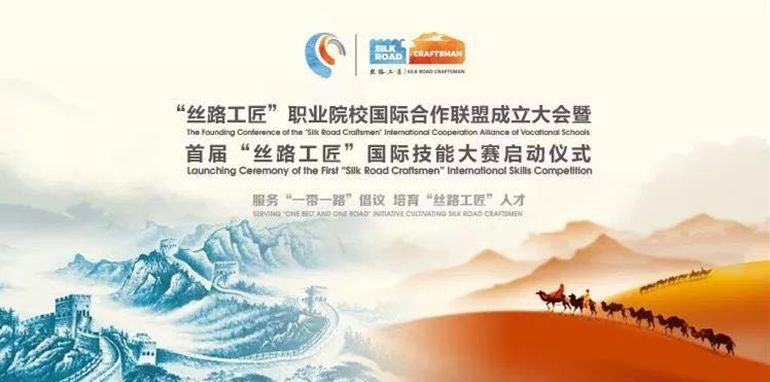
About the Alliance Education has been explicitly positioned in Opinions on the Work of the Opening-up of Education in the New Era and the Promotion of the Cooperative Construction of the “One Belt, One Road” Education Activity, the two documents released by the State Council in 2016: Special efforts will be made for “five communications”(political communication, facility connection, smooth trade, financing and exchange of people) by focusing on the “One Belt, One Road” Initiative. Talent support will also be provided for enhancing the exchange of people and other “four communications”. In 2007, the General Secretary Xi Jinping pointed out the following instructions in the report of the 19th CPC National Congress: “we would build the knowledge-based, skilled, and innovative workforce and carry forward model workers, promote quality workmanship”. He hoped that the vocational education can improve themselves both internally and externally, keep making advancement together, deepen the integration of production and education and improve the modern vocational education system constantly. According to the Decision of the State Council on Accelerating the Development of Modern Vocational Education released in March 2018, “we should accelerate the construction of modern vocational education system and improve talent training quality”. Under the context of this era, Beijing’s vocational education has actively responded to the international exploration and formed a clear development strategy. View details
The inaugural meeting of the international cooperation alliance of "Silk Road craftsmen" Vocational Colleges and the launching ceremony of the first "Silk Road craftsmen" international skills competition was held in Fengtai District Vocational Education Center School (Yangqiao campus), The theme of the one is "serving one belt, one road" and cultivating "Silk Road craftsman". China's "one belt, one road" initiative was originated from China, but the opportunity and achievements belong to the world, Huang Kan, deputy director of the Beijing Municipal Education Commission, said at the founding conference. One belt, one road occupation China, was founded jointly by the Beijing Municipal Education Commission, the Fengtai District government and the Russian Embassy, the Kazakhstan embassy and the Uzbekistan embassy. The International Federation of Silk Road craftsmen and the first international competition for Silk Road craftsmen were designed to train high-quality professionals with high quality to meet the common needs of China and the countries and regions along the "one belt" road. 。 View details
Beijing Union University
Beijing Information Science and Technology University


Beijing Fengtai Vocational High School
Beijing Youth University for Political Sciences
Beijing WECO International Education Culture Co., Ltd
Beijing Qiushi Vocational School
Republican Institute for Vocational Education


Beijing Fangshan Vocational School
Beijing Xicheng Vocational School
Beijing Jinsong Vocational High School
Beijing Xin Cheng Vocational School
Beijing Business School
Beijing Yanqing Vocational School
Beijing Agricultural Vocational College
Beijing Changping Vocational School
Beijing Railway Electrification School
1. Authority. The management system was formulated by authoritative management departments and has compulsory binding force within its application scope. It cannot be modified and violated at will upon its formulation;
2. Integrity. The management of an organization must include all execution matters entirely. In case that any new execution matters are discovered or happen, the corresponding management system should be formulated to ensure all the matters are handled in accordance with the system;
3. Exclusiveness. If a management principle or method is specified by system, all matters in violation of the above will be forbidden. The system is applicable universally within a specific scope. All the management systems apply to different scopes of application, within which, all similar matters should be dealt with in accordance with the system;
4. Enforceability. The organization’s systems must be enforceable and must not deviate from the organization’s affairs or become impractical;
5. Relative stability. Any management system that has been specified cannot be easily changed in a period of time. Otherwise, its authority will be lost. The stability is relative, for the system can be revised in time once it no longer complies with the realities.
6. Social attribute. Therefore, the socialism management systems are formulated to safeguard the interests of all workers.
7. Fairness and justice. The management system treats everyone in the organization equally and sets no exception for anyone.